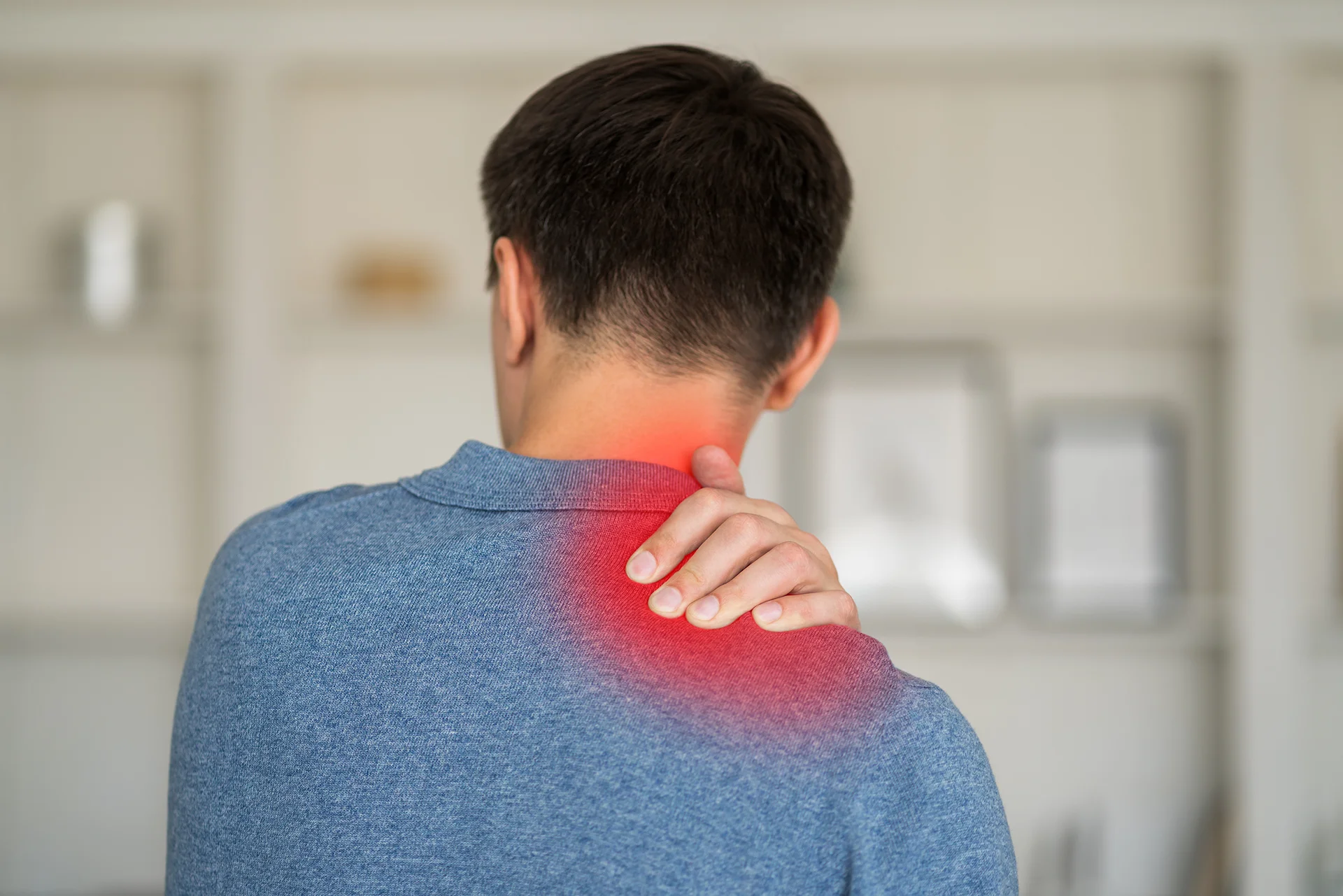Taking a deep breath should be relaxing, not painful. Yet for many, upper back soreness strikes when inhaling. Sharp or dull pain between the shoulder blades or across the upper spine can make every breath agonizing. This not only ruins your day but can indicate serious underlying conditions.
So why does your upper back hurt when breathing? What causes this symptom and how can you find relief?
What Causes Upper Back Pain When Breathing In?
Inhaling requires chest and rib cage expansion. This natural motion of breathing can strain tissues in an already sore upper back. But pain specifically on inhalation often stems from other sources. Some potential causes include:
Muscle Tension
Chronic tightness and spasms in the upper back and shoulder muscles frequently occurs due to poor posture, overuse from sports, work strain, or stress. As you inhale, these tense muscle groups are stretched, triggering pain signals. Improving posture, massage, physical therapy, and stress management help relieve this muscular cause of pain when breathing.
Rib and Vertebrae Issues
Fractures, arthritis, or osteoporosis affecting your ribs and upper spine bones may lie behind painful breathing. As your chest expands, cracked ribs shift, arthritic joints are aggravated, and weak vertebrae are compressed. Seeking treatment for the underlying bone condition is key.
Lung Conditions
Disorders like pneumonia, pleurisy, bronchitis, or COPD cause inflammation and fluid buildup that irritates lung tissue. Breathing stretches this inflamed tissue, generating pain. Treatments range from antibiotics for infection to inhalers for COPD.
Heart Conditions
Issues like pericarditis or angina can refer pain to the upper back area, especially when breathing deeply. The trademark chest pain of angina results from inadequate oxygen to the heart. See a cardiologist for diagnosis and management.
Can Upper Back Pain Cause Shortness of Breath?
While upper back conditions do not directly restrict lung function, severe muscle spasms and joint pain can make deep inhaling difficult. Thr pain can be caused by:
Torn Muscles
Bulging or torn upper back muscles, often from sports injuries or falls, produce debilitating spasms and mobility loss. Limited chest expansion when breathing then leads to shortness of breath. Physical therapy aids recovery.
Spinal Osteoarthritis
Degenerating facet joints between upper vertebrae cause muscle tightness and limited mobility. The spine cannot fully flex and extend during breathing. Spinal injections offer some arthritis pain relief.
Ankylosing Spondylitis
This inflammatory arthritis fuses spinal vertebrae together in a hunched position. Chest expansion and deep breathing cannot occur, resulting in gradually worsening shortness of breath. Medications reduce inflammation and pain.
Why does my upper back hurt when I breathe?
Sharp, stabbing, or dull pain in the upper back area when inhaling deeply is often caused by muscle tightness, spinal issues, lung conditions, or even heart problems. The natural expansion of the chest during breathing can strain already tender muscles or compressed nerves. Inflammation from lung infections also irritates tissue. Upper back soreness specifically when breathing in warrants further evaluation.
How can I diagnose upper back pain when breathing?

To determine the underlying cause of upper back discomfort when inhaling, see your doctor for a physical exam and diagnostic testing. They will assess your breathing and may order imaging scans like x-rays or MRIs to check for spinal injuries, arthritis, or lung issues. Bloodwork helps rule out infections or heart problems. Pulmonary function tests can reveal lung conditions leading to breathing pain. Discuss all medications as well.
How is upper back pain when breathing treated?
The treatment depends on the diagnosed cause but generally includes medication combined with therapy. Over-the-counter anti-inflammatories like ibuprofen can alleviate muscular tightness and pain. Prescription drugs may be needed for severe lung infections or COPD.
Physical therapy improves posture and mobility. Injections can reduce spinal arthritis symptoms. Treating anxiety may relieve pain from muscle spasms. Rarely, surgery is required for fractures or tumors.
How can I prevent upper back pain when breathing?
- Maintain good posture and ergonomics when working
- Stretch upper back and chest regularly
- Exercise aerobically to strengthen back muscles
- Use proper form when lifting heavy objects
- Manage stress through yoga, massage, meditation
- Get a supportive mattress and shoes
- Stay updated on vaccinations
- Quit smoking to optimize lung function
When should I see a doctor for upper back pain when breathing?
Seek prompt medical care for sudden, severe, or persistent upper back pain when breathing. Quickly worsening or unexplained symptoms need evaluation to rule out serious conditions like blood clots, pneumonia, or heart problems.
Difficulty taking deep breaths along with upper back pain also warrants urgent assessment. Even mild but recurring soreness not relieved by stretching requires professional diagnosis and management. Don’t delay breathing problems.
You Deserve Pain-Free Breathing

At Kaly, we understand how frustrating and limiting upper back pain can be, especially when it flares up just taking a deep breath. The constant tightness and stabbing sensations keep you from filling your lungs fully and enjoying everyday activities.
Our compassionate spine health experts are dedicated to diagnosing the root cause of your upper back discomfort and guiding you toward effective, lasting relief. We dig deeper to pinpoint the muscles, joints, nerves, or conditions contributing to your pain when inhaling.
